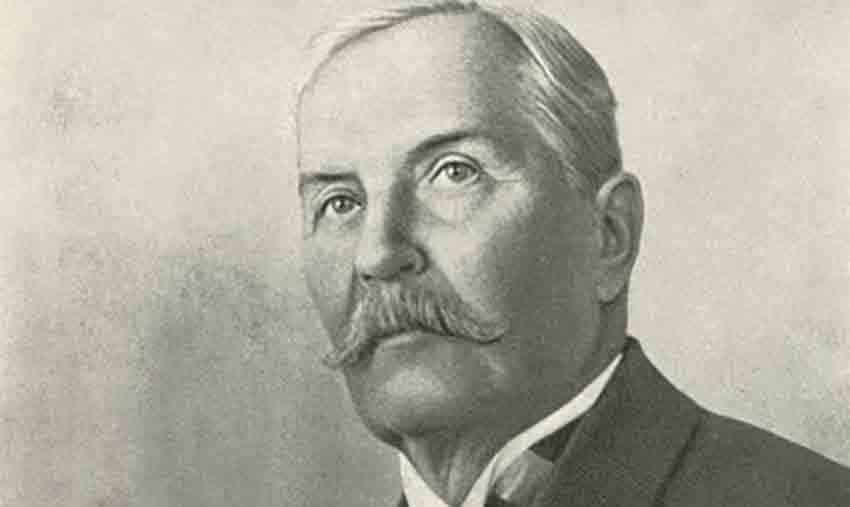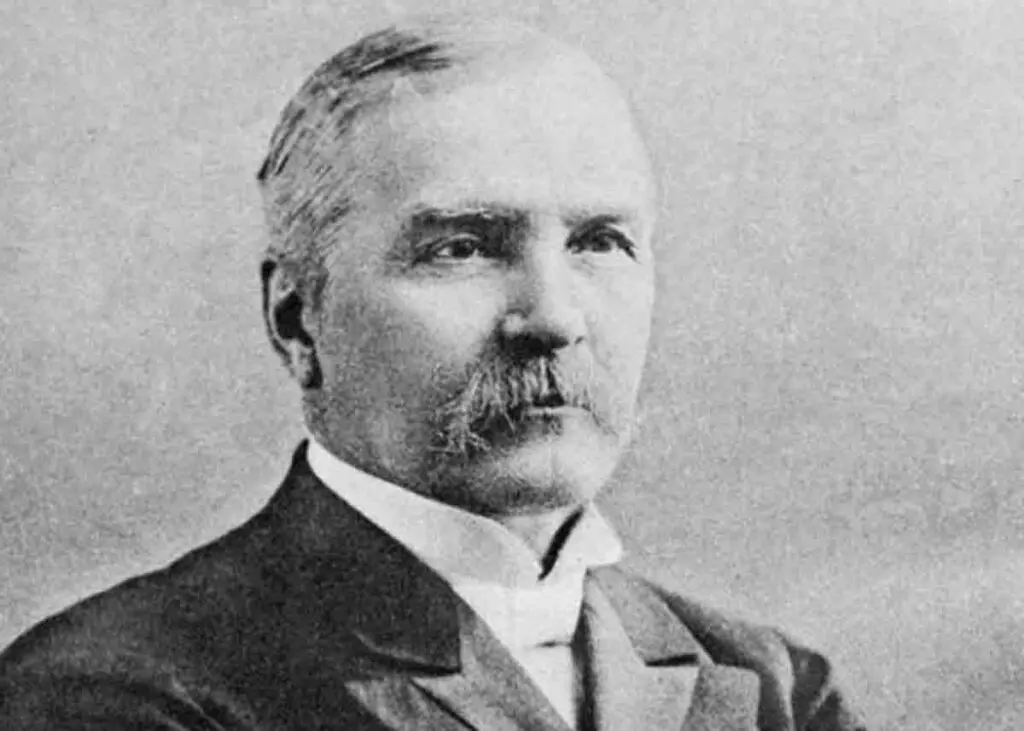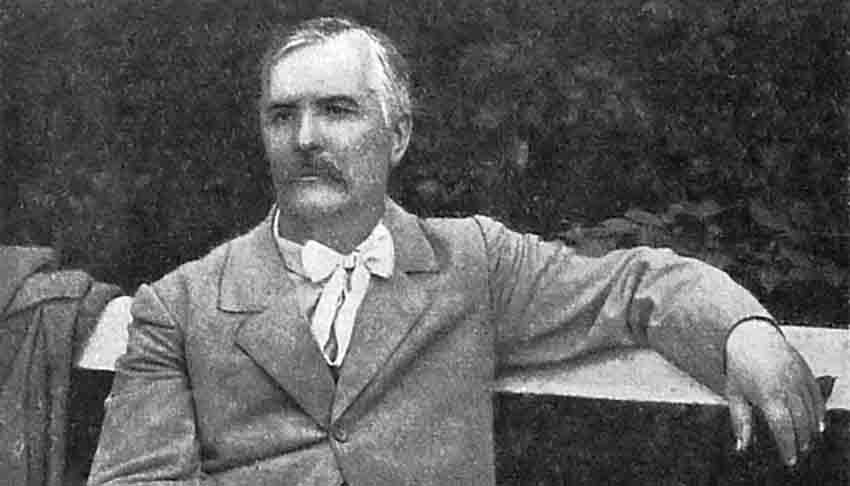Mykola Lysenko made an undeniable contribution to the development of Ukrainian culture. Lysenko told the whole world about the beauty of folk compositions, he revealed the potential of author's music, and also stood at the origins of the development of theatrical art of his native country. The composer was one of the first to interpret Shevchenko's Kobzar and ideally did arrangements of Ukrainian folk songs.

Maestro's childhood
The composer's date of birth is March 22, 1842. He was born in the small village of Grinki (Poltava region). The outstanding maestro was from the old Cossack foremen's family Lysenko. The head of the family held the position of colonel, and his mother came from a landowner family.
Parents wanted to give their children a good education. Not only his mother, but also the famous poet Fet was engaged in homeschooling Nikolai. He spoke several foreign languages, and besides, he was actively interested in music.
When the mother noticed with what trepidation her son treats music, she invited a music teacher to the house. He was not indifferent to Ukrainian poetry. Lysenko's favorite poet was Taras Shevchenko. He knew the most popular poems of Taras Grigorievich by heart.
Mykola had a special love for Ukrainian folk songs. His grandmother often sang lyrical compositions at home, which contributed to the development of Lysenok's ear for music.
After completing home schooling, Nikolai moved to Kyiv. Here the young man studied in several boarding houses. In general, Lysenko's studies were easy.
Nikolay Lysenko: Youthful years
In 1855 he became a student of the prestigious Kharkov Gymnasium. A few years later, he graduated from an educational institution with a silver medal. During this period of time, he is actively involved in music. On the territory of Kharkov, he was known as a promising musician.
He played music at balls and parties. Lysenko skillfully performed works by famous foreign composers for a demanding audience. Nikolai did not forget about improvisation on the theme of Little Russian folk melodies. Even then, he thought about the career of a musician and composer.

After graduating from the gymnasium, he became a student at Kharkov Imperial University, choosing the faculty of natural sciences for himself. Some time later, his parents moved to Kyiv. Nikolai was forced to transfer to a local university. He graduated from the school in 1864. A year later, he received a PhD in natural sciences.
The thought of getting a musical education did not leave him for a long time. Three years later, he decided to enter the Leipzig Conservatory. Recall that at that time the conservatory was considered the best educational institution in Europe. It was within the walls of this institution that he realized how important it was to compose his own music with shades of his culture, and not just copy the works of foreign maestros.
Nikolai graduated from the conservatory with honors. After that, he decided to return to Kyiv. He gave this city four decades. He was engaged in composing compositions, teaching and social activities. Only for a few years he was forced to move to the cultural capital of Russia in order to hone his skills in the field of symphonic instrumentation. At the end of the 70s, the maestro took a position as a piano teacher at the Institute of Noble Maidens.
Contribution to Ukrainian culture
In 1904, the maestro's dream came true. The fact is that he founded a music and drama school. Recall that this is the first educational institution on the territory of Ukraine, which provided higher musical education under the program of the conservatory.
The maestro has worked in many musical genres. He paid special attention to the processing of Ukrainian folk songs. The tsarist policy, which at that time raged on the territory of Ukraine, did not prevent the composer from forming a position regarding the status of his native language in musical creativity. In the maestro's repertoire, only one work was written in Russian.
Among the composer's most popular musical works are the operas Taras Bulba, Natalka Poltavka and Aeneid. It is important to note that his work was influenced by the works of Shevchenko. He is deservedly considered the "father" of Ukrainian folk music. A significant role in this issue was played not only by composing, but also by ethnographic.
Due to the fact that he tried to promote the Ukrainian language, he was persecuted by Russian representatives of the tsarist authorities. Nikolai was arrested several times, but the authorities did not have a single reason to keep the composer behind bars.
Biographers say that Lysenko's goal throughout his creative career was to lead the simple Ukrainian people out of complete poverty and darkness, into the wide and spacious European world.

Interestingly, the Maestro's Ukrainian Suite is the first piece of music that ideally combined European dance traditions and Ukrainian folk art. Lysenko's works are now heard in the best theaters in the world.
Details of the personal life of maestro Nikolai Lysenko
The personal life of the maestro can definitely be called interesting and eventful. Since Lysenko was not the last person in Kyiv, representatives of the weaker sex were interested in him.
Teklya is the first girl who sunk into his soul. By the way, not only Nikolai fell in love with the Ukrainian beauty, but also his brother. Young people did not fight for her girlfriend. Later, the composer dedicated a piece of music to Tekla.
A popular maestro led a girl named Olga O'Connor down the aisle. In Ukraine, a girl with her family ended up immediately after the Napoleonic invasion. By the way, he was no different from Ukrainian girls, Irish by origin.
She was eight years younger than Nikolai, and besides, she was his niece. She had a powerful soprano voice. The couple married in 1868, and traveled together to Leipzig. At the new place, Olga took vocal lessons. Later she graduated from the St. Petersburg Conservatory and performed vocal parts in her husband's operas. When she started having problems with her voice, she taught vocals.
It turned out that the loss of voice is not the biggest problem. Olga suffered from mental illness. She had mood swings, she suffered from depression, and her mood was more often gloomy than good. For these reasons, a woman could not have children. Olga and Nikolai, after 12 years of marriage, decided to disperse, although the official divorce did not happen. Then the dissolution of marriage required a lot of effort and time from the partner.
Soon he met a charming brunette named Olga Lipskaya. Young people met at a Lysenko concert in Chernigov. The woman struck the musician with her beauty. In addition, she sang and drew very well. Nikolai will call the girl his "right hand".
Nikolai Lysenko: Life with a civil wife and a new love
They had a difficult relationship. Olga abandoned the development of her career and, as it were, was in the shadow of the popular Lysenko. She chose for herself not the happiest female fate. Olga could not become the official wife of Nikolai, and even in order to give birth to a child from the maestro, she had to flee Kiev.
Olga dedicated Lysenko for 20 years. He did not take her as an official wife, but one way or another, she bore him 7 children. Alas, only five of them survived. The woman died in her last childbirth. At that time, he actively composed musical works, but for some mysterious reasons he did not devote a single composition to this woman.
He was already over 60 when he fell in love again. This time, he chose a girl who was 45 years younger than him. The maestro was not at all embarrassed by such a big difference in age.
He fell in love with his student, whose name was Inna. It was the strangest relationship in his entire life. The girl's parents did not agree to a relationship, and the girl herself did not even dare to live together, but continued to spend time with Lysenko.
Note that all the children of Lysenko followed in the footsteps of their famous father. They chose a creative career for themselves. The youngest son, whose name was Taras, was considered the most talented child. The young man played almost all musical instruments.
Interesting facts about the maestro
- During the period of the abolition of serfdom, his wealthy family went bankrupt. But, one way or another, Lysenko managed to secure a decent existence for himself. By those standards, he lived quite richly, but he never accumulated capital.
- Today, the descendants of the Ukrainian classic are alive in three lines: Ostap, Galina and Maryana. The family honors the memory of a famous relative.
- Mikhail Staritsky, who wrote "Chasing Two Hares", is Nikolai's second cousin.
- He wrote his first polka at the age of ten.
- All his life he was engaged in choral work.
- After the death of his cohabitant Olga, Lysenko asked his official spouse to legitimize all children.
Death of a Ukrainian composer Nikolay Lysenko
He died suddenly. His entourage had long known that he suffered from pain in the region of the heart. On October 24, 1912, he was about to go to school. But life has made its own adjustments. He had a heart attack. Half an hour later, the composer was gone.
The body of the maestro was buried only on the 5th day after his death. The composer's body rests at the Baikove cemetery. An unrealistic number of people gathered for the funeral ceremony. These were relatives, friends and admirers of Lysenko's work.



